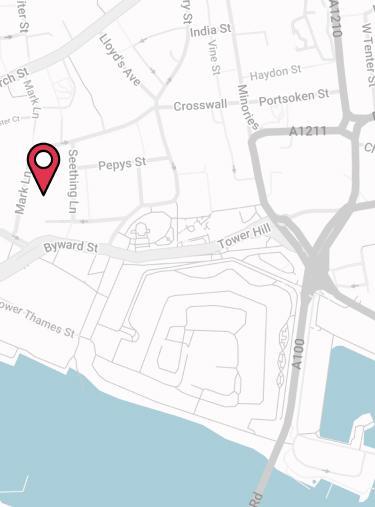Considering Private Health Insurance for you and your family? You’re in the right place.
As the NHS faces high demand, staff shortages, and a lack of funding, many UK citizens are looking for an alternative. And when you have children, their health is your priority.
The sudden onset of an illness or diagnosis of a condition can be a worrying time for a family. Family Health Insurance can give you peace of mind and help reduce any health anxieties you have.
But what exactly is Private Health Insurance for families? What does it cover? What special parental-based benefits does it offer? This guide covers everything you need to know about a family health plan.
What Is Family Health Insurance?
Health Insurance for your family covers treatment of acute conditions for you and your family members. It’s the same as standard Private Health Insurance policies, except it covers multiple people under one plan. You can get cover for yourself, your partner, your children, and even any dependent parents.
A Family Health Insurance policy provides:
- Healthcare when you or a family member on your policy need it most
- Quick access to diagnosis, treatment and medication
- Choice over where you receive care and who by
- Shorter waiting lists and treatment times.
One of the top benefits is how it enables you and your family to skip long NHS waiting lists. You can get the medical attention you need without waiting weeks for treatment.
Most UK health insurers also let you add newborns to a family health plan straight away. Your policy can cover children from birth right up to the age they’re no longer eligible dependents. Typically, this is age 21.
Why Is It Important?
It’s one thing to take out Private Medical Insurance for yourself, but what about your dependents? A policy that covers your immediate family can ensure they get necessary treatment fast.
Waiting for medical care as an adult is frustrating enough, without adding kids into the mix. It can also end up affecting your income if you can’t work while you wait for treatment. If you have a family, becoming unwell can affect your ability to take care of them and your home. This makes receiving prompt treatment essential.
As a parent, you know firsthand how scary it can be for your child to come down with something. It doesn’t matter if it’s a minor issue or a serious condition, you’ll want to make sure they can get the right care as soon as possible.
How Does Family Health Insurance Work?
Family Private Health Insurance works in the same way as a standard health policy. The only difference being the number of people covered under the same plan. You and your partner will be covered, as will your dependent children.
Premiums are paid from your own personal bank account, either monthly or annually. Once the policy is up and running, you’ll be able to make a claim for any eligible medical care.
Does It Replace The NHS?
No. Private Health Insurance isn’t designed to replace the NHS. It aims to supplement the healthcare provided by it.
Your family will always rely on the NHS for emergencies, routine pregnancy, and chronic conditions. In the event of an emergency, you don’t have the time to claim on your policy. You need medical attention ASAP, which is why the NHS isn’t replaceable.
The level of cover you choose will often dictate what conditions you may still use the NHS for. It’s important to remember that your GP will remain at the forefront of your routine healthcare.
No Outpatient Cover
Your chosen level of cover affects the route your family will take to private medical care. If you have a basic health policy without outpatient care, your GP will refer you to the NHS for tests, consultations, and diagnostics. After this, you’ll be referred for private treatment if your policy covers it.
![]()
With Outpatient Cover
It’s rare that our clients don’t include any outpatient care on their policy, so it’s likely your journey to private treatment will go as follows. Instead of your GP referring you, or your family member, to the NHS for medical tests, you’ll receive a referral for private care straight away. This is only if your health issue is covered by the policy.
By having outpatient cover, the pathway to private treatment is often faster than the NHS.
![]()
Chronic Vs Acute Conditions
We’ve distinguished how your level of cover can impact your access to private healthcare. It’s also important to know what chronic and acute conditions are.
When it comes to medical issues, there are two types you could develop:
- Acute conditions
Any condition that passes with time and medical attention. For example, cataracts needing removal or joint pain requiring a joint replacement
- Chronic conditions
These conditions remain with you for life. Even with medical attention, doctors can’t cure them, only manage them. This includes asthma and diabetes.
Your Family Health Insurance policy will only cover acute conditions. If you or your child suffers with a chronic illness, the NHS will provide all ongoing management. This applies even if you have an active health policy.
What Does UK Health Insurance For Families Cover?
By now, you should have a robust understanding of what Family Private Health Insurance is and how it works. So, what does it cover?
Level Of Cover
How much coverage your family gets depends on the options you pick when setting up your policy. All UK health insurers have a range of options, some of which you can add to your plan for higher premiums.
It doesn’t matter whether you use the NHS or go private, all healthcare needs are categorised into either: Inpatient or Outpatient.
- Inpatient / day-patient
Any healthcare requiring a hospital bed, either overnight (inpatient) or just for the day (day-patient). This is usually after surgeries
- Outpatient
All healthcare where you don’t need a hospital bed. This includes consultations, diagnostic tests and scans and treatment, such as physiotherapy.
As standard, all Health Insurance policies, even the most basic plans, cover inpatient and day-patient care.
Meanwhile, outpatient treatment is an optional extra. You don’t have to include it on your family’s Health Insurance policy, but most of our clients do. Outpatient care can help to speed up access to any private inpatient treatment you need.
Cancer Cover
Unfortunately, there are thousands of cancer diagnoses every year in the UK. Due to this, all health insurers now include cancer care and treatment as standard.
As one of the most valuable parts of your policy, it includes:
- Exclusive access to cutting-edge drugs, treatments and procedures not available on the NHS
- Chemotherapy / radiotherapy
- Cash towards wigs and prosthetics needed due to cancer treatment / surgery
- Bone strengthening drugs
- Access to home nursing for a set number of days
- Options to receive chemotherapy at home rather than in a clinical setting.
There are many extra benefits you can choose to add on to your Family Health Insurance policy, such as:
These can help to ensure all health bases are covered. But optional extras will increase your monthly premiums.
What Doesn’t Family Health Insurance Cover?
Even the most Comprehensive Health Insurance will not cover every possible medical condition. Like other types of insurance, there are always going to be exclusions. These apply to every policyholder and aren’t specific to the individual.
You can expect these to be excluded from Family Health Insurance:
- Routine pregnancy / childbirth (you may be covered for complications)
- Chronic conditions
- Cosmetic surgery
- Kidney dialysis
- Health issues related to alcohol or substance abuse
- Screening and preventative treatment (e.g. mammograms)
- Self-inflicted injuries, through dangerous sports or hobbies, for example.
Health Insurance For Your Children
As you can add children to your policy, there are many benefits that are specific to the care they may need. Your options will depend on who you buy Family Health Insurance cover from.
You might see listed in your policy documents:
- Parent accommodation
When any child your policy covers needs private inpatient treatment, your insurer may pay for a parent to stay in the hospital with your child. This is often up to £100 a night for a set number of nights depending on the insurer
- Birthmark treatment
Most insurers pay for procedures to remove or at least reduce the appearance of a child’s birthmark, such as laser correction for port wine stain birthmarks
- Ear correction surgery
Procedures to pin back prominent ears in children under a certain age. AXA, for example, covers children under the age of 14
- Speech therapy
Should your child struggle with their speech, many providers pay towards a set number of sessions with a speech therapist
- Cash benefit on the birth of a child
As well as being able to add a child to your Family Health Insurance policy from birth, you may also be liable for a cash bonus to help welcome your newborn to the world.
Digital GP Service
Many parents will no doubt have faced the dilemma of an ill child in the middle of the night or at the weekend, when your options to access medical treatment are limited.
Even when your GP surgery is open, it’s not always easy to get an appointment when you need it.
To combat this, Family Health Insurance policies all now offer access to a Digital GP service. This provides phone or video consultations with a UK-registered GP via your smartphone.
Appointments are available 24/7 in most cases, so you and your children can get medical advice whenever and wherever suits you.
A remote GP can do everything your NHS GP can, including:
- Provide medical advice
- Issue prescriptions
- Make referrals on your behalf for private medical treatment.
How can I reduce the cost of my Family Health Insurance?
Where Private Health Insurance is modular, there are several adjustments you can make to reduce the price.
It’s important to note that many of the ways you can reduce costs also reduce the level of cover. We would advise you to speak to a specialist to ensure the balance between cost and cover meets your needs in the most effective way.
Common Ways To Reduce Premiums
Some of the most common changes you can make to trim your Family Health Insurance costs include:
- Limit outpatient cover
Having no outpatient cover at all will save money, but you’ll rely on the NHS for outpatient care. You can pick the limited outpatient option, though. Here, the insurer pays for outpatient procedures up to a set monetary limit per policy year. This limit is typically £1,000
- Add an excess
An excess is one of the best ways to reduce premiums without impacting how comprehensive your cover is. This is the amount of money you pay upfront towards private medical care before your policy kicks in. The larger the excess, the lower your premiums
- Include 6 week wait option
Before private inpatient care, your insurer checks the NHS waiting list in your area first. If the waiting time is less than 6 weeks, you use the NHS. If the wait is longer than 6 weeks, or the NHS doesn’t offer the treatment you need, then the insurer pays for private healthcare as normal. This is known as a ‘6 week wait option‘, by adding it to your policy you can reduce the amount you pay. Note: Due to the current length of NHS waiting times, some insurers such as AXA aren’t offering this option. The market changes regularly, so if you’re unsure, give us a call on 02074425880 or email help@drewberry.co.uk to find out your options.
- Limit your hospital network
Another option to make your Family Private Health Insurance more affordable is a reduced hospital list. A reduced list usually limits where you can have private treatment. It’s normally private wards in NHS hospitals or only local private facilities.
Which underwriting is right for my family?
You have two medical underwriting options with Family Health Insurance: Moratorium Underwriting and Full Medical Underwriting.
Which one is right for you and your family members depends on your medical history.
- Moratorium Underwriting (MORI)
Most choose Moratorium Underwriting. Here, your insurer excludes any medical conditions you’ve had advice, medication or treatment for in the 5 years leading up to the plan’s start date. This exclusion will typically be on a rolling moratorium basis. Your insurer will reconsider covering the pre-existing condition after you’ve spent 2 years on the policy without receiving any treatment for it
- Full Medical Underwriting (FMU)
Full Medical Underwriting requires you to declare your medical history, including any pre-existing medical conditions, before you buy a policy. You’ll fill out a family medical history form. The insurer then usually excludes these. While this means you know exactly what you are and aren’t covered for from the beginning, it can be tricky to get the exclusions removed. When an insurer underwrites you on an FMU basis, it usually looks at all medical conditions, not just those which have occurred in the past 5 years, as is the case with Moratorium Underwriting.
When should I review my Family Health Insurance premiums?
Once you have Family Health Insurance, the policy renews each year. This offers you an opportunity to review the market on a yearly basis and ensure you’re still getting the most competitive deal.
We recommend people regularly review their policies to ensure they’re still getting the best cover for the best price. You may find your monthly premiums increase as a result of rising nationwide medical costs.
An annual review is part of the service we provide for all our clients. We’ll go out to the entire market and compare quotes from every UK insurer to negotiate the best terms for your renewal. If it turns out you could get a cheaper plan elsewhere, we’ll then facilitate a switch between providers.
This is important because switching can be tricky to do yourself. You’ll need to switch providers on a Continuing Personal Medical Exclusions (CPME) basis if there is medical history to consider.
CPME ensures you won’t face any new exclusions when switching. You’ll keep exactly the same level of cover as before.
Do We Need Family Health Insurance?
Family Health Insurance isn’t a necessity. You don’t have to have it to receive your healthcare, thanks to our beloved NHS.
However, our free healthcare system is facing many challenges, which have increased waiting times. In April 2023 alone, there were 7.42 million people waiting for NHS treatment. Nearly 3 million of these were waiting at least 18 weeks for care.
Whether you fall ill or one of your family members does, long wait periods are not ideal. Health issues can progress over time, which is why it’s a no-brainer to get the care you need as soon as possible. A Family Health Insurance policy can help to ensure your family receives treatment faster. It also reduces the burden on the NHS.
Access To Advanced Medications & Parental Benefits
There are certain types of care and treatment that the NHS doesn’t have the budget to provide. Experimental medical treatment for cancer, for example. Often this is included in your Private Health Insurance cover.
With Family Health Insurance plans, you are entitled to a range of additional benefits and services which you might not have received via the NHS. We mentioned parental accommodation before. Health Insurance companies often pay for one parent to stay with their child during a child’s inpatient care.
How Much Does Family Health Insurance Cost 2026?
The cost of your Family Health Insurance will depend on several factors. Generally speaking, there is a fairly linear formula to work out the price of premiums.
Health Insurance for couples will cost around double a policy for one person. When adding kids on, calculations are often made by halving an adult premium and adding it to the price.
There are several factors which will affect the costs, though. This includes age, location and whether you or any other adult on your health plan smoke.
Providers
Each Health Insurance provider will charge different monthly premiums. This is because each insurer has its own appetite for risk and can offer different services and benefits. So it’s always good to shop around when looking for the right Health Insurance for your family.
To show how costs can differ from provider to provider, we’ve pulled some quotes below. These are based on:
- A 35-year-old couple with children aged 10 and 14
- A comprehensive policy with a £100 excess.
Each insurer has their own pricing philosophy. It’s important to compare quotes from a range of providers to ensure you’re getting the best deal.
Level Of Outpatient Cover
Adding outpatient cover to your Family Health Insurance will increase the cost. It’s rare for a policyholder not to add it on, however.
There are differing levels of outpatient coverage. A mid-range policy may provide up to £1,000 worth of outpatient care. While a Comprehensive Health Insurance policy provides full cover.
Using the same factors as above, we’ve calculated the monthly cost of different levels of outpatient cover.
Excess
An excess is the amount you’re willing to pay upfront towards your care before your insurance kicks in to cover the rest. The higher your excess, the lower your premiums. You’ll either pay this excess per claim or per policy year. Your policy documents will detail this.
Excesses start at £0 and go all the way up to £5,000. AXA offers one of the highest excesses on the market, at £5,000. While Bupa’s highest is just £500.
As an example of how excesses can impact premiums, we’ve got some quotes for you. These are based on the same 35-year-old couple with children aged 10 and 14 with full cover.
Hospital Networks
Family Health Insurance doesn’t mean your family is eligible for treatment in all UK private facilities. When you buy a Health Insurance policy, you’ll choose a hospital list. This will determine the private facilities you get treatment in.
There are often several ‘tiers’ of private facilities. The best private hospitals, such as those in London, are the most expensive to be treated in. The more comprehensive your hospital network and the pricer the facilities, the higher your premiums.
If you’re not worried about which facility you can use, you can limit your network and reduce your premiums. Bear in mind that these are then limited to local private facilities and private wings of NHS hospitals.
Location
Where your family lives has an effect on the price of your Health Insurance. If you live in the capital city, for example, your premiums will reflect the treatment costs of healthcare there. Essentially, it’s a postcode lottery.
SPECIALIST TIP 🤓
There are some providers, such as Freedom, that don’t base premiums on your location. Providers like this could be more suitable if you live in London as they won’t rate premiums on your postcode, unlike others.
6 Week Wait Option
The 6 week NHS wait option is offered by most UK health insurers. Here, your policy only pays out if the NHS waiting list for the inpatient treatment needed is more than six weeks. Or if the NHS doesn’t offer the procedure you need. If the wait is less than six weeks, care is provided by the NHS.
Adding the six week option to your policy can lower the cost of your premiums.
This option only applies to inpatient treatment. Outpatient care is unaffected as this is an optional add-on. Care is almost always carried out privately with this.
Our specialist in-depth review of each of the UK's leading providers
Who Are The Best UK Private Medical Insurance Providers?
There are five main health insurers in the UK, each with their own unique product:
In addition to these, there are also a handful of smaller, more specialised insurers you could use depending on your needs. WPA and Freedom, for example.
When carrying out your own research, it is important to review the entire market. Each insurer has its own pricing philosophy, which is dependent on a range of factors. Some of which are specific to your family.
Additional Benefits
When comparing insurers, it’s also important to look at the additional benefits they offer. These can add real value to your policy.
The best Private Medical Insurance now often includes:
- Remote GP services
- Health checks
- Physiotherapy
- Stress & mental health support
- Second medical opinions
- Rewards & discounts.
Compare Family Health Insurance Quotes & Get Specialist Advice
Family Health Insurance offers peace of mind and helps to ensure your loved one’s get the best healthcare exactly when they need it.
However, with lots of options to choose from, it’s not always a simple policy to arrange. At Drewberry, we’ve had the pleasure of setting up many Family Health Insurance policies. Our team of specialists understand the complexities of a policy covering multiple family members and have first-hand experience with these plans.
If you’re thinking about getting Family Health Insurance, speaking to a specialist is always a good idea. We can help you set up your policy and make sure it suits your needs. For more advice and guidance, please don’t hesitate to get in touch with our team. Pop us a call on 02074425880 or email help@drewberry.co.uk.
Why Speak to Us?
When it comes to protecting your health, you deserve first-class service. Here’s why you should talk to us:
- There’s no fee for our service
- We’re an award-winning independent insurance broker, working with the leading UK insurers
- You’ll speak to a dedicated specialist from start to finish
- 4100 and growing independent client reviews rating us at 4.92 / 5
- Claims support when you need it most
- Authorised and regulated by the Financial Conduct Authority. Find us on the financial services register.





















![Bupa Health Insurance [Review] Image](/_next/image?url=https%3A%2F%2Fmedia.drewberry.co.uk%2FProject-Penguin-Provider-logosBUPA.png&w=480&q=75&dpl=2070)


